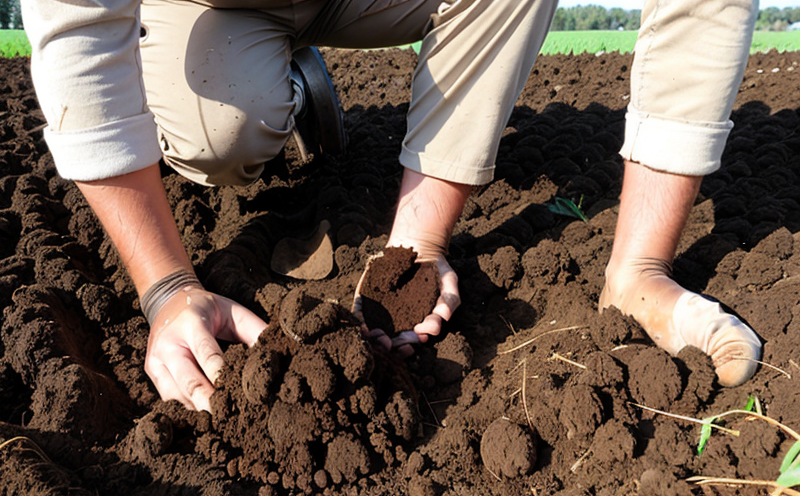Soil Potassium (K) Content Testing
In agriculture and forestry testing, soil potassium content is a critical parameter that influences crop productivity and plant health. Potassium plays a vital role in regulating water balance within plants, enhancing their resistance to disease, and supporting overall growth and development. Accurate measurement of soil potassium levels helps farmers and researchers make informed decisions regarding fertilization practices.
The testing process for soil potassium content involves several steps: sample collection, preparation, analysis, and interpretation. Samples are typically collected from different zones within a field or forest plot to ensure representativeness. Proper sampling is crucial as it directly impacts the accuracy of the results.
Sample preparation often includes drying and grinding the soil to a fine powder to facilitate uniform distribution during testing. Various methods can be employed for quantifying potassium content, including flame atomic absorption spectrophotometry (FAAS) or inductively coupled plasma optical emission spectroscopy (ICPOES). These techniques provide precise measurements that adhere to international standards such as ISO 13964:2008 and EN ISO 17295.
The interpretation of soil potassium content data is essential for understanding its impact on plant health and growth. Excessively high or low levels can lead to deficiencies or toxicity, affecting crop yields negatively. Therefore, it’s important to set appropriate thresholds based on local climate conditions, soil type, and intended use.
Understanding the role of potassium in soil fertility also aids in optimizing nutrient management strategies. By regularly monitoring soil potassium content, farmers can tailor their fertilization programs more effectively, reducing costs while improving environmental sustainability.
Benefits
- Improved Crop Yields: Accurate determination of soil potassium content ensures optimal application rates, leading to better crop performance and higher yields.
- Sustainable Farming Practices: Regular testing helps in adopting sustainable agricultural practices by minimizing over-fertilization and reducing environmental impact.
- Enhanced Plant Health: Proper potassium levels contribute significantly to plant vigor, disease resistance, and overall health.
Customer Impact and Satisfaction
- Customers gain valuable insights into their soil quality, enabling them to make informed decisions about their farming practices.
- By providing reliable data, our service helps customers improve the efficiency of their operations, leading to increased productivity and profitability.
- We ensure that our clients are well-informed about potential issues within their fields or forests, allowing for timely interventions.
Eurolab Advantages
At Eurolab, we pride ourselves on offering comprehensive soil testing services tailored to meet the diverse needs of our clients in agriculture and forestry sectors. Our state-of-the-art laboratories equipped with advanced analytical equipment ensure precise and reliable measurements.
We employ highly qualified personnel who are experts in agricultural sciences and have extensive experience in conducting various types of soil analysis. Our commitment to quality is reflected in our adherence to international standards such as ISO 17295:2013 for soil testing methods.
Our services extend beyond just providing test results; we offer detailed reports that include recommendations based on the findings, helping clients implement targeted actions for enhancing their agricultural practices. With us, customers receive not only accurate data but also actionable insights to drive success in their operations.





